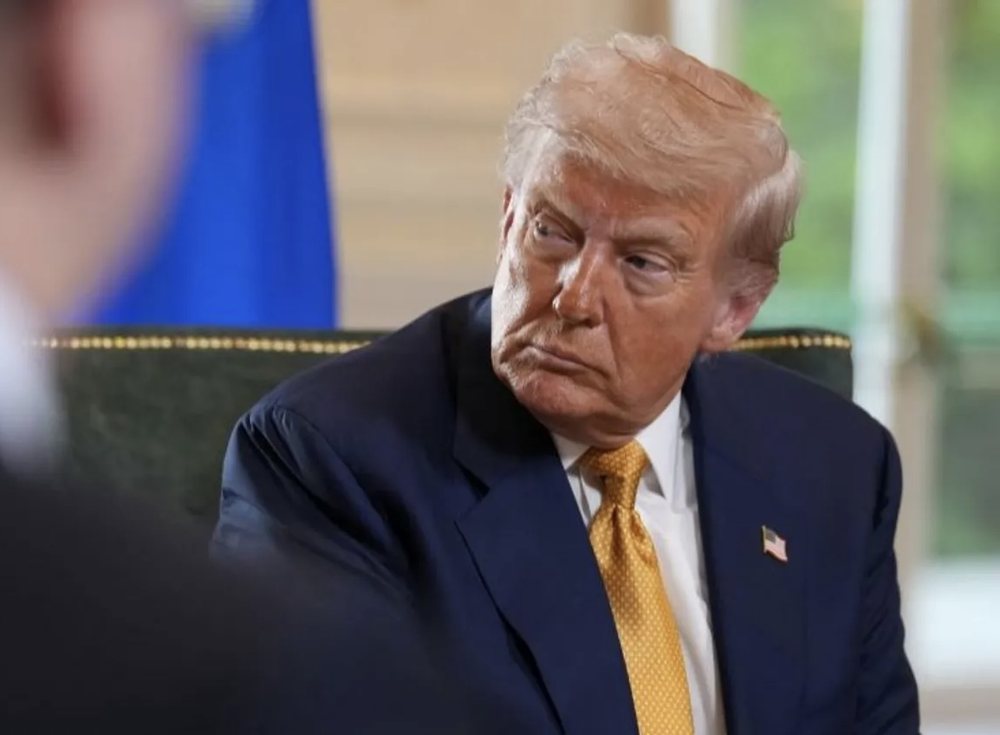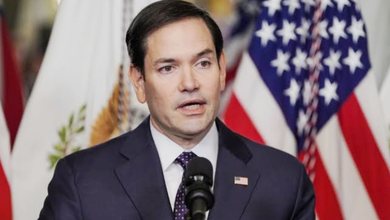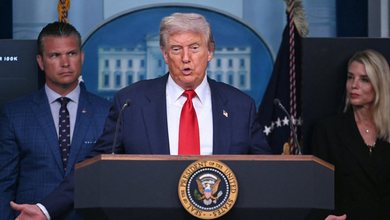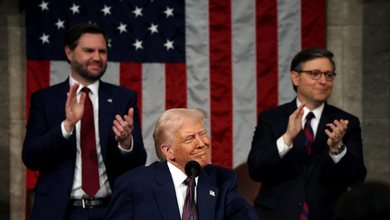
SHBA dhe BE kanë arritur atë që po cilësohet si marrëveshja tregtare më e madhe në histori, pas bisedimeve në Skoci muajin e kaluar.
Disa detaje të marrëveshjes kanë dalë në dritë pasi fillimisht vendet publikuan vetëm kornizën e saj.
Njoftimi i Presidentit Donald Trump dhe kreut të BE-së, Ursula von der Leyen, jep disa të dhëna mbi sektorët dhe grupet që mund të preken më shumë ose të përfitojnë.
Trump – fitues
Pasi premtoi marrëveshje të reja tregtare me dhjetëra vende, Trump sapo siguroi më të madhën prej tyre.
Sipas shumicës së komentuesve, duket se BE ka dhënë më shumë lëshime, me një analizë të Capital Economics që sugjeron një ulje të PBB-së me 0.5%.
Do të ketë gjithashtu dhjetëra miliarda dollarë që do të derdhen në arkat e SHBA-së nga taksat e importit.
Por titujt që e shpallin këtë marrëveshje mund të mos zgjasin shumë, nëse kritikët tregojnë drejt të dhënave të fundit për inflacionin, punësimin, rritjen dhe besimin e konsumatorëve si prova se riformatimi radikal i ekonomisë së SHBA nga Trump po kthehet në bumerang.
Konsumatorët amerikanë – humbës
Amerikanët e zakonshëm tashmë janë të pakënaqur me rritjen e kostos së jetesës, dhe kjo marrëveshje mund ta shtojë barrën duke rritur çmimet e mallrave të BE-së.
Edhe pse jo aq e ashpër sa mund të ishte, pengesa që përfaqëson një normë tarife prej 15% është e rëndësishme, dhe dukshëm më e lartë se pengesat që ekzistonin para kthimit të Trump në pushtet.
Tarifat janë taksa mbi mallrat e blera nga vende të tjera. Zakonisht, ato llogariten si përqindje e vlerës së produktit. Pra, një tarifë 15% do të thotë se një produkt prej 100 dollarësh i importuar nga BE do të ketë një taksë shtesë prej 15 dollarësh – duke e çuar koston totale për importuesin në 115 dollarë.
Kompanitë që sjellin mallra të huaja në SHBA duhet ta paguajnë këtë taksë qeverisë, dhe shpesh ua kalojnë pjesërisht ose plotësisht këtë kosto klientëve.
Tregjet – fitues
Bursat në Azi dhe Evropë u rritën pas lajmit të parë për kornizën e marrëveshjes.
Në kuadër të marrëveshjes, SHBA do të vendosë një tarifë prej 15% mbi mallrat e importuara nga BE. Ndërsa kjo normë është e konsiderueshme, ajo është më e ulët nga sa mund të ishte dhe të paktën ofron siguri për investitorët.
Marrëveshja është “qartazi miqësore ndaj tregjeve dhe duhet të sjellë potencial shtesë në euron”, tha Chris Weston nga Pepperstone, një broker australian, për AFP.
Solidariteti evropian – humbës
Marrëveshja do të duhet të miratohet nga të 27 anëtarët e BE-së, secili me interesa dhe nivele të ndryshme varësie nga eksportet drejt SHBA.
Ndërsa disa vende e kanë pritur marrëveshjen me kujdes, të tjera kanë qenë kritike – duke lënë të kuptohet për ndarje brenda bllokut, i cili po përpiqet gjithashtu t’i përgjigjet krizave të tjera si lufta në vazhdim në Ukrainë.
French Prime Minister François Bayrou commented: “It is a dark day when an alliance of free peoples, united to affirm their common values and defend their common interests, surrenders to subjugation.”
He was joined by at least two French ministers, as well as Viktor Orban, the Hungarian leader, who said Trump "ate von der Leyen for breakfast."
Car manufacturers in Germany – losers
The tariff faced by importers bringing cars from the EU to the US has been almost halved, from the 27.5% that Trump imposed in April, to a new rate of 15%.
Cars are one of the EU's main exports to the US. And as the EU's largest car manufacturer – thanks to VW, Mercedes and BMW – Germany has been following this development closely.
Its leader, Friedrich Merz, has welcomed the new pact, while admitting that he would have welcomed a "further facilitation of transatlantic trade."
Even the German automobile manufacturers' association, VDA, warned that even a 15% rate would "cost the German automotive industry billions every year."
American car manufacturers – winners
Trump is trying to boost American car production. American manufacturers got a boost when they learned that the EU was cutting its tariff on U.S.-made cars from 10% to 2.5%. Theoretically, this could lead to more American car sales in Europe.
This may be positive for sales abroad, but the pact is not good news for sales in the domestic market. This is because of the complicated way American cars are put together.
Many of them are assembled overseas – in Canada and Mexico – and Trump has made them subject to a 25% tariff when they are brought into the US. That compares with a lower rate of 15% for EU cars. So American manufacturers may now fear being undercut by European competition.
European pharmaceuticals – losers
Trump had previously threatened a 250% tariff on European-made drugs sold in the U.S. The EU wanted the drugs exempted or at the lowest possible rate to maintain sales.
The US president had said that pharmaceuticals and semiconductors were not included in the announced deal. But later details show that tariffs will be capped at 15% for both sectors – the same as for most other sectors.
The European pharmaceutical industry had hoped for a complete exemption from the tariffs. It currently enjoys significant exposure to the US market thanks to products such as Ozempic, a type 2 diabetes drug manufactured in Denmark.
This has been noted in Ireland, where opposition parties have stressed the importance of industry and criticized the detrimental effect of uncertainty.
American energy – winner
Trump said the EU would buy $750 billion in American energy, in addition to increasing overall investment in the US by $600 billion.
"We will replace Russian gas and oil with significant purchases of American LNG, oil and nuclear fuels," Von der Leyen said.
This will deepen ties between European energy security and the US, at a time when Europe is moving away from dependence on Russian gas after the full invasion of Ukraine.
Aviation industry in the EU and the US – a winner
Von der Leyen said that some "strategic products" would not face tariffs, including aircraft and their parts, some chemicals and some agricultural products.
This means that companies that produce parts for airplanes will have unhindered trade between the two major trading blocs.
She added that the EU still hopes to reach more "zero-for-zero" agreements, especially on wines and spirits, in the coming days.






















